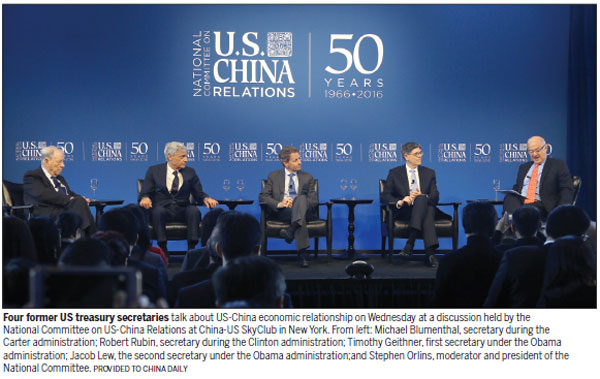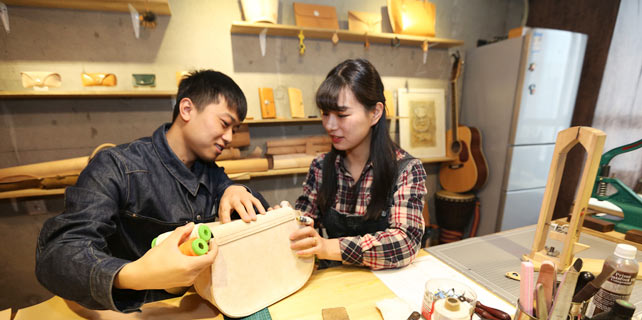Ex-Treasury officials call for candor on ties

A trio of former US treasury secretaries said they would advise US President Donald Trump to work out any differences that may prevent bilateral cooperation and to engage thoroughly with China on potential conflicts ahead of President Xi Jinping's visit to the US in April.
"I would say to the president that he ought to say to President Xi that, 'I would like to know from you what your most significant problems are with respect to us, and our behavior and what we're doing, so we can try to work on those with you,'" said Robert Rubin, treasury secretary during the Clinton administration, "'and I'd like you to know what our most significant problems are with respect to you, and I would like you to give us people to engage with to try to work on those problems.'"
Jacob Lew, the second treasury secretary in the Obama administration, advised the US and China to make the issue of North Korea a priority. It is in the interest of both countries to come to an agreement on a "transnational issue of enormous importance", he said.
"I think in general the conversation between our two countries has to be about where can we find areas where we can work together and how can we handle the things that we disagree on, through channels that are not destructive, and that would be the frame that I would think about," Lew said on Wednesday in a discussion hosted by the National Committee on US-China Relations at the China-US SkyClub in New York.
Michael Blumenthal, who served during the Carter administration, said, "I can do it in one sentence. I think he should tell [the Chinese], 'I have since studied and learned that the bilateral trade balance between two countries is not the critical issue.'"
Timothy Geithner, who served as the first treasury secretary during the Obama administration after the 2008 financial crisis, sidestepped giving direct advice, instead saying that it's important for Americans to realize that the economic fortunes of the country are "about [the US], not about what other countries do to [the US], not exacerbated by the strengths of other countries or the things that they do."
"It's really all about us. And the most important thing we can do is try to figure out some ways as a country to rediscover the capacity of the government and to put in place a set of policies that will make us stronger and help us navigate the difficult, complicated world," he said.
Blumenthal, who lived in China for nearly a decade during the World War II, said that the importance of establishing a relationship with China is a bipartisan matter.
"I say this because we're at a particular juncture," he said, adding that the relationship between the two countries "needs to be nourished and handled carefully and with understanding".
amyhe@chinadailyusa.com
















